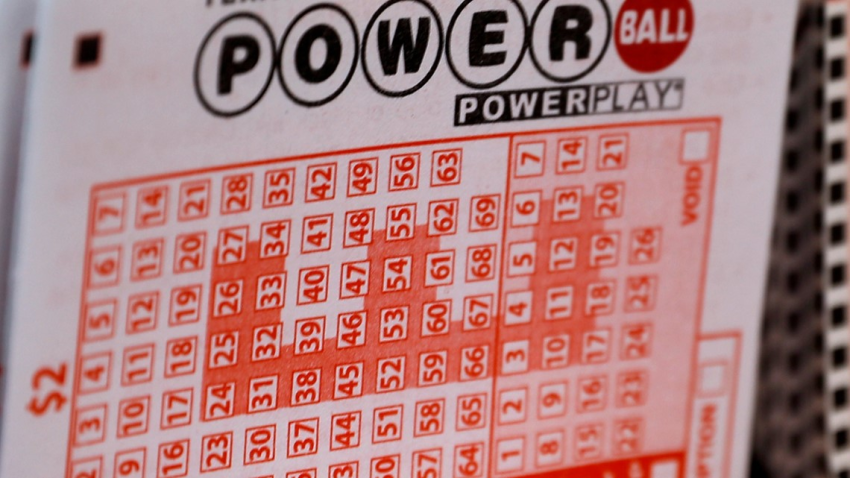Powerball jackpot numbers are more than just random digits that could change your life overnight; they represent a complex interplay of chance and mathematics that many players overlook. Every time a Powerball drawing occurs, millions of hopeful participants eagerly await the announcement, dreaming of a windfall. However, understanding the Powerball odds is crucial, as they currently stand at a staggering 1 in 292.2 million. This article will explore the intricate lottery winning strategies and the underlying Powerball mathematics that govern the chances of winning, turning what seems like simple luck into a fascinating statistical puzzle. By fostering statistical literacy, participants can better navigate lottery combinations and make informed choices when trying to beat the odds in this tantalizing game of chance.
In the world of lottery games, the quest for hitting the jackpot brings out a mixture of excitement and anticipation among participants. Known commonly as the Powerball, this beloved lottery format captivates millions with its promise of life-altering winnings. Engel into the mathematical concepts behind this game, one discovers the significant odds at play and the patterns that may aid in selecting numbers. Understanding these dynamics allows players to engage with their chosen lottery numbers in a new light, utilizing informed strategies to potentially enhance their chances. As we delve deeper into the realm of lottery mathematics, we will unfold the complexities of probability and the diverse strategies players employ in pursuit of their dreams.
Understanding Powerball Jackpot Numbers
Powerball jackpot numbers are often seen as the gateway to untold wealth, captivating the imagination of players everywhere. However, it’s essential for participants to comprehend the immense odds stacked against them. At **1 in 292.2 million**, winning the jackpot is more about luck than strategy. Knowledge of the game’s structure and the mathematical principles behind the combinations that lead to potential winnings can help players cultivate a sense of realistic expectation. This understanding serves as a foundation for anyone participating in the Powerball, rather than merely relying on luck.
The allure of the Powerball lies not just in the jackpot amount, but in the anticipation that accompanies each drawing. However, it’s crucial for players to acknowledge the statistical truth behind the Powerball jackpot numbers. Much like understanding lottery combinations, gaining insight into how often certain number patterns emerge can shape playing habits. As we’ve learned, every number has an equal chance of being drawn, thus reinforcing the essence of randomness that governs the game. This narrative underscores the importance of being informed over being driven merely by hope.
The Role of Statistical Literacy in Lottery Strategies
Statistical literacy plays a pivotal role in developing effective lottery strategies, particularly in games like Powerball. Understanding key concepts, such as the odds of winning and the mathematics behind combinations, allows players to make more informed choices when selecting their numbers. For example, knowing that the odds of winning any prize are **1 in 24.9** prompts players to think critically about their expectations. As players become more knowledgeable about these figures, they can accurately gauge what it means to play Powerball—acknowledging that no strategy can ensure a win.
Additionally, fostering statistical literacy promotes responsible gaming behavior. Players who understand the inherent the odds of Powerball can better manage their budgets and enjoy the game without succumbing to the fantasy of frequent wins. Awareness of statistical probabilities can level the playing field, allowing newcomers and seasoned players alike to approach the game with a mindset that combines excitement with prudence. Therefore, the cultivation of knowledge not only enhances the game experience but also reduces the risk of financial strain due to unrealistic expectations.
Frequently Asked Questions
What are the mathematical odds of winning the Powerball jackpot numbers?
The odds of winning the Powerball jackpot numbers are approximately 1 in 292.2 million. This staggering figure is derived from the number of possible combinations when selecting five white balls from a pool of 69 and one red Powerball from a pool of 26. Understanding these Powerball odds helps players recognize the daunting challenges of winning the jackpot.
Can using lottery winning strategies improve my chances of selecting the Powerball jackpot numbers?
While employing lottery winning strategies such as analyzing past winning numbers may seem appealing, it’s important to understand that each number combination in Powerball has an equal chance of being drawn. Therefore, these strategies do not significantly enhance the likelihood of correctly selecting the Powerball jackpot numbers. Ultimately, the game is governed by randomness, and responsible gaming should be prioritized.
| Key Points | Details |
|---|---|
| Powerball Overview | Lottery game with significant jackpot allure, often leading to vast ticket purchases. |
| Winning Odds | Odds of winning the jackpot: 1 in 292.2 million; odds of winning any prize: 1 in 24.9. |
| Mathematical Combinations | Winning requires selecting 5 numbers from 69 and 1 from 26; calculated with combinations. |
| Number Selection Strategies | Players often choose between frequency strategies or quick picks, but all combinations have equal odds. |
| Impact of Jackpot Growth | Higher jackpots drive ticket sales but do not affect the inherent odds of winning. |
| Responsible Gaming | Importance of understanding odds and probabilities to manage expectations and encourage informed play. |
Summary
When it comes to Powerball jackpot numbers, understanding the mathematical complexities behind winning is crucial for players. While many are drawn to the thrill of possibly winning a life-changing amount, the reality of the odds—1 in 292.2 million for the jackpot—highlights the need for a pragmatic approach to playing. By recognizing the role of mathematics and statistics in the lottery, participants can enjoy the game responsibly and avoid common pitfalls associated with unrealistic expectations. As Powerball continues to captivate millions, maintaining this awareness will ensure a balanced perspective on the allure of the jackpot.
